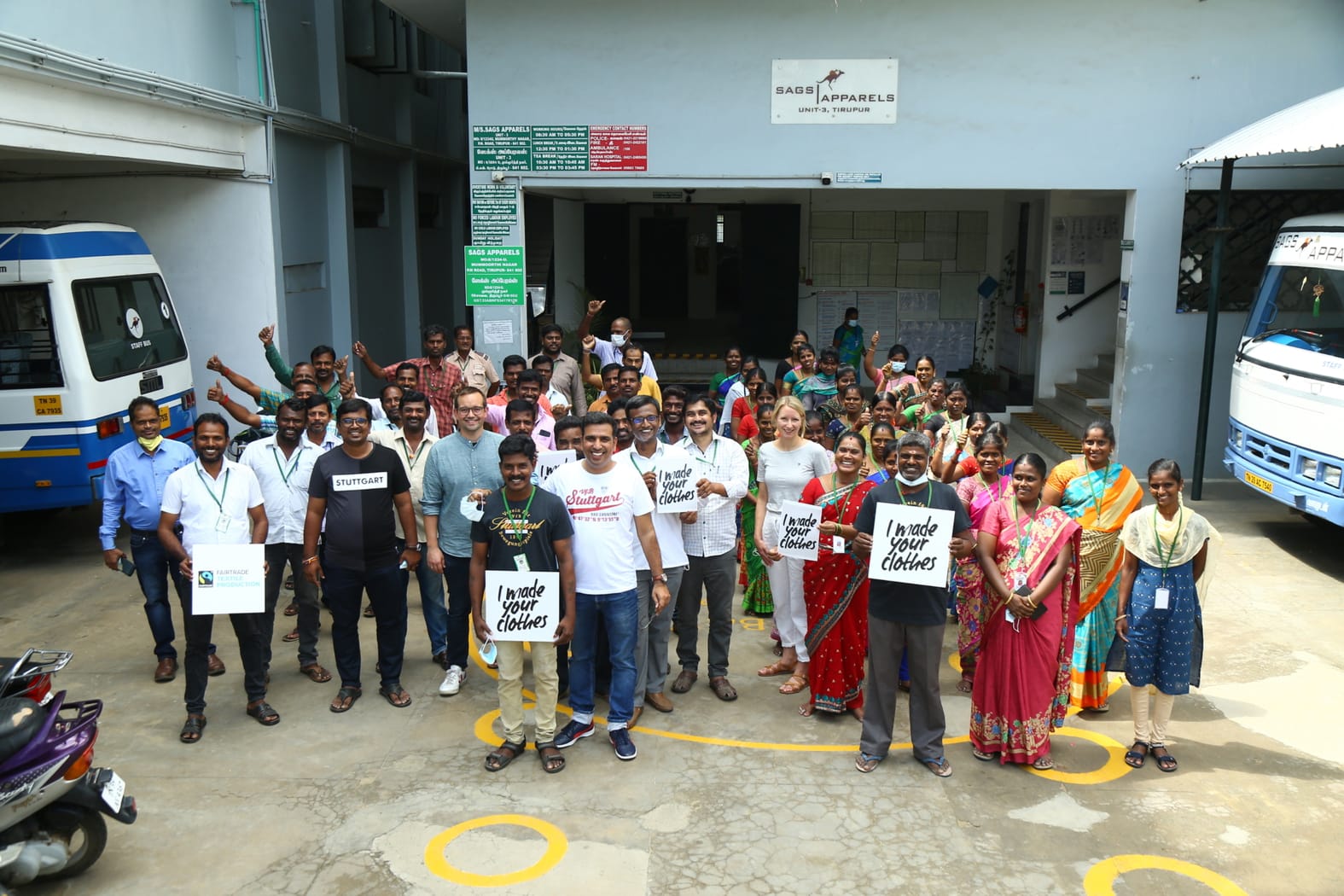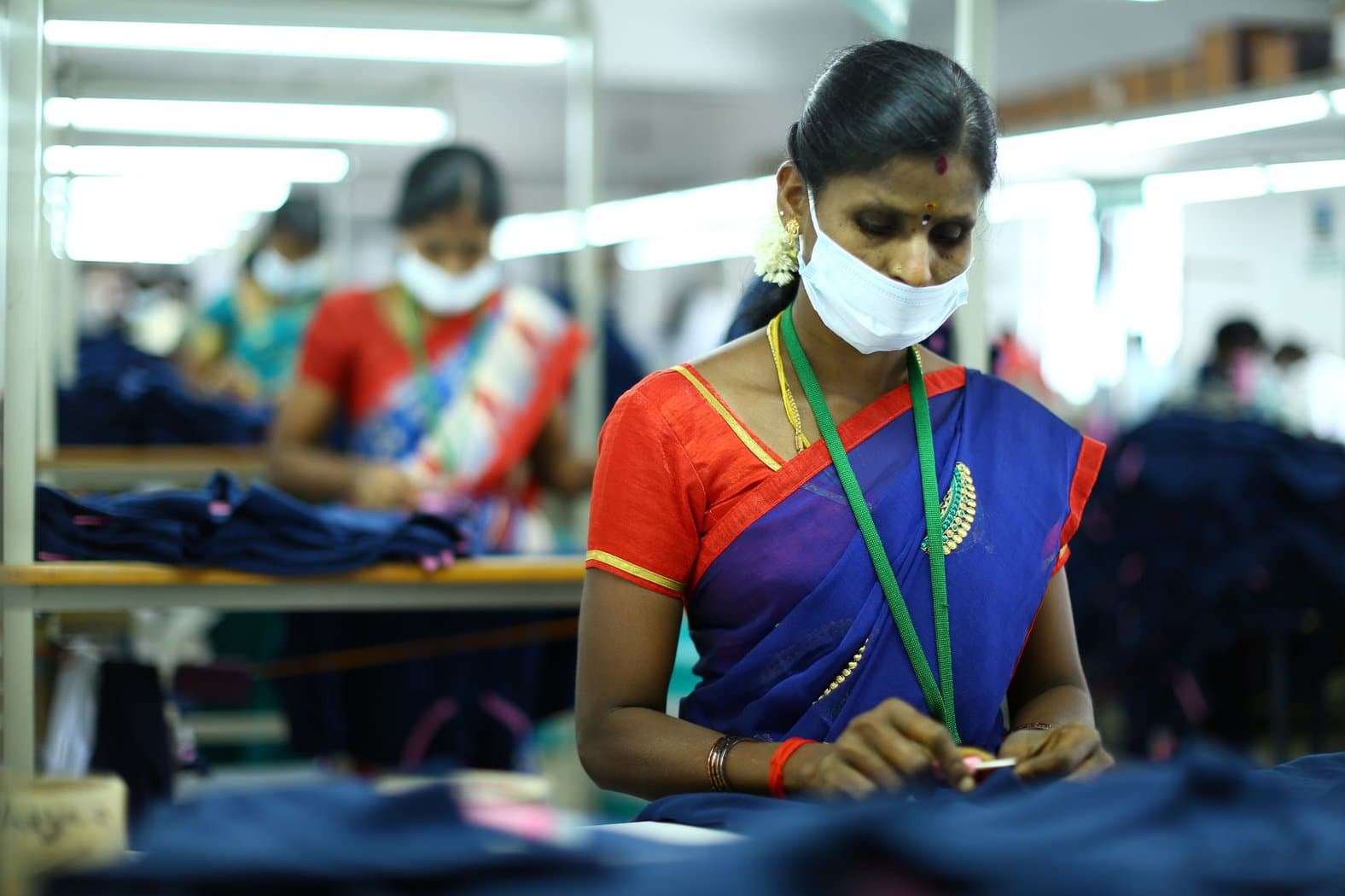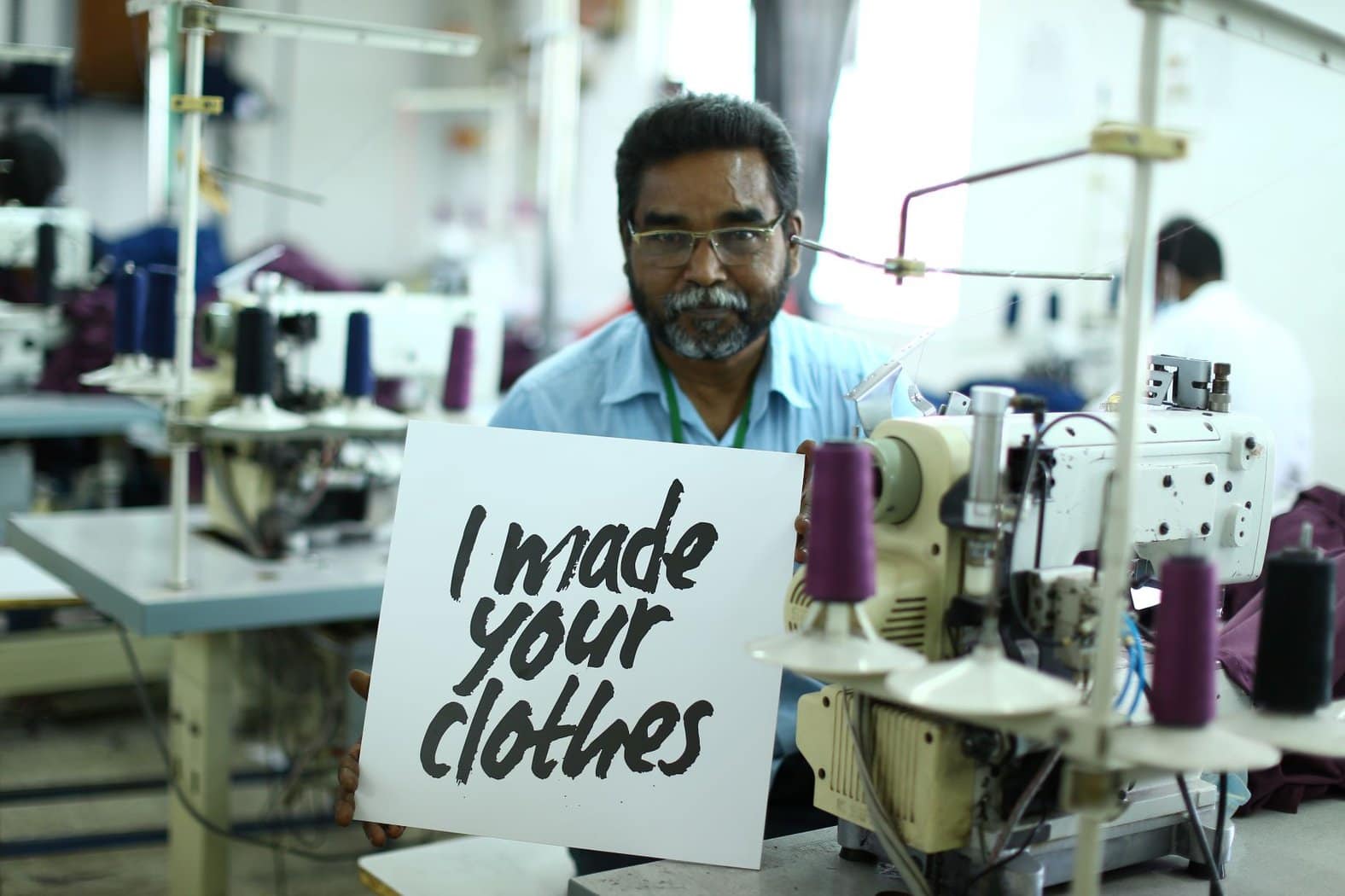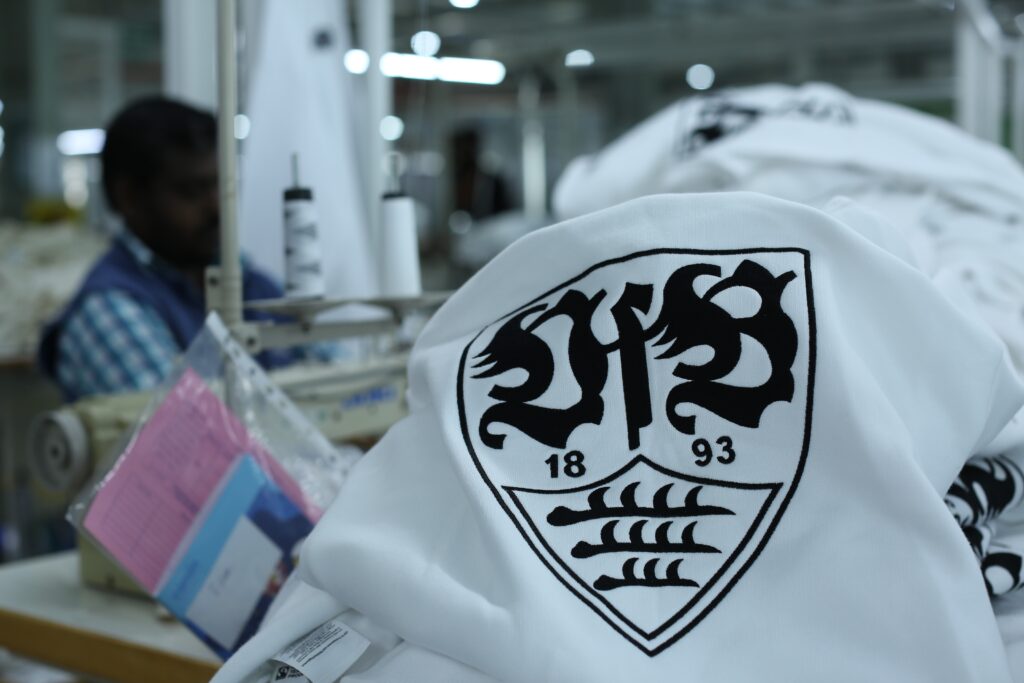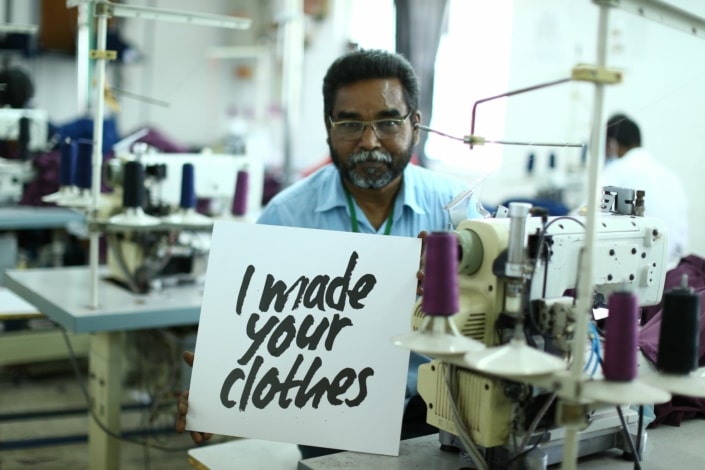20 April 2023
Impact of a sustainable and fair production
Facing the risks of a global supply chain is challenging. In addition to possible negative effects on the environment, the textile industry is often related with the violation of human rights.
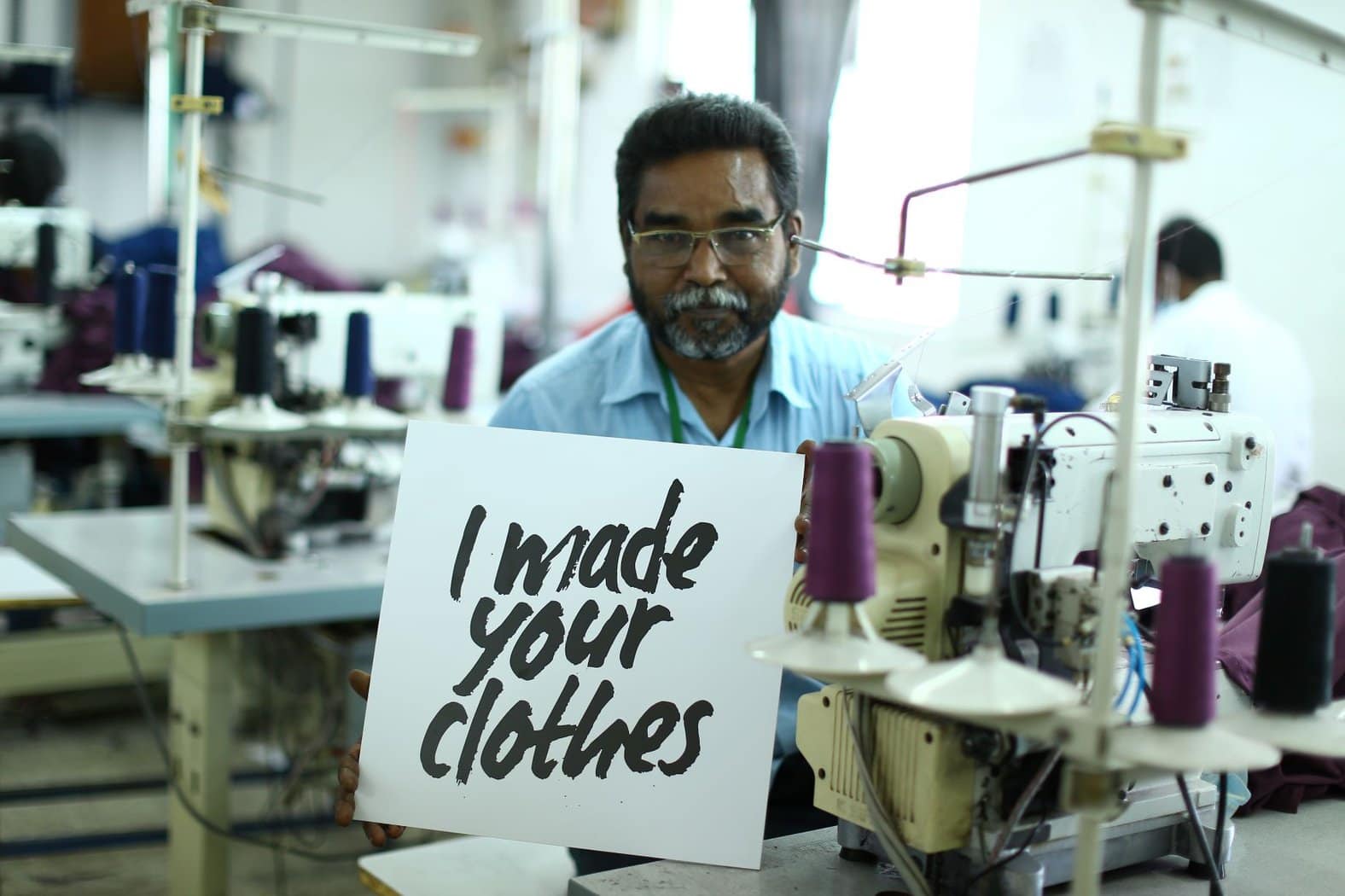
In an Interview with Fairtrade Deutschland in January 2023, R.V. Puttaswamy from the Garment Labour Union India reported, that “in the current scenario of the garment industry, working conditions are very bad. That is why living wage is important in any working situation. Workers are spending 60 % of their salary on house rent. In big cities the living costs are very high, they don’t have the possibility to buy good nutritious food for themselves or to give their children. They need good education, which they must pay. All those things are very expensive. Because of this they are suffering.”
We take our due diligence very seriously. The requirements we place on our employees, suppliers and business partners to comply with human rights and environmental protection are reflected in our policy statement. To address grievances, we are visiting our suppliers as often as possible, we are working together with onsite agents as well as maintaining close partnerships with our suppliers.
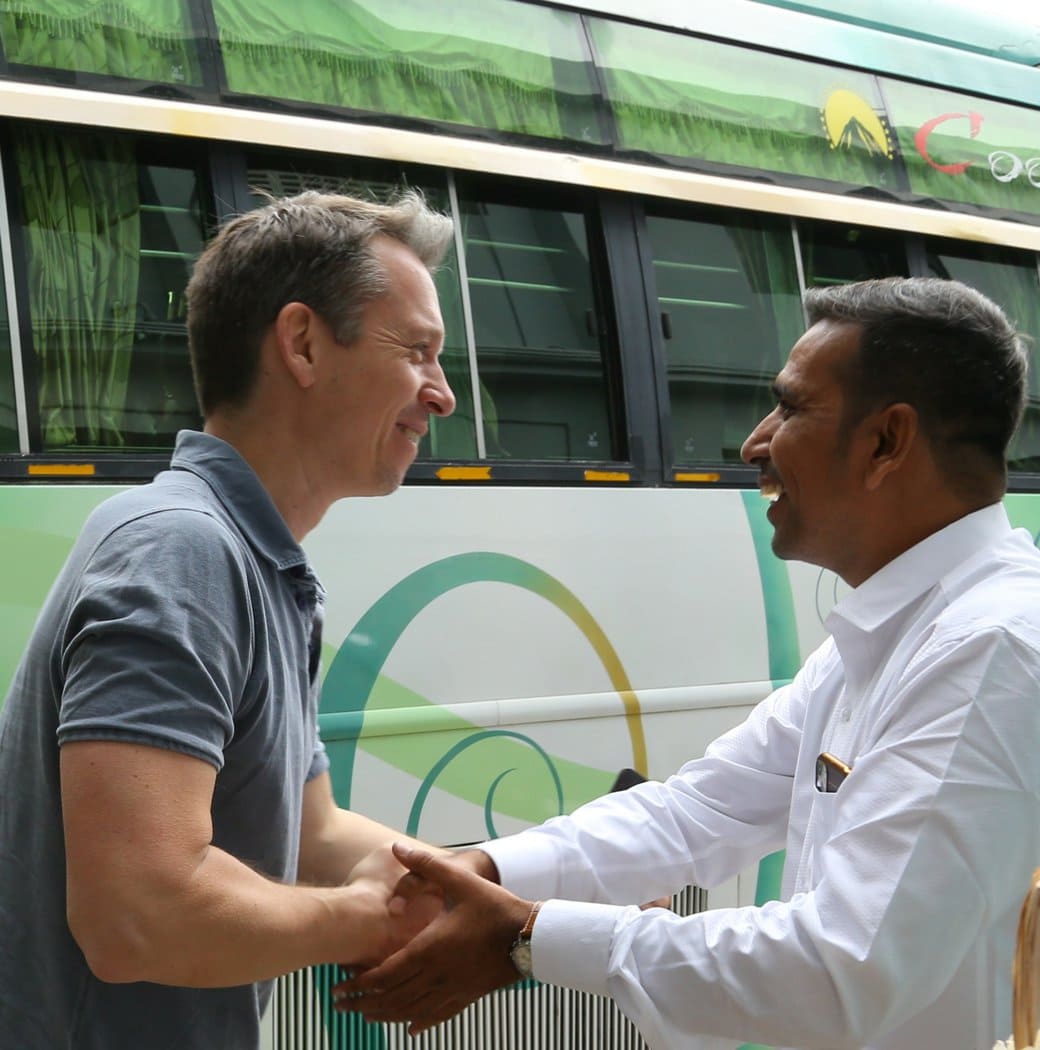
Mathias Diestelmann (Managing Partner BRANDS Fashion) & Ganesh Anantharaman (Manager SAGS Apparels)
The Green Factory is one of our dearest partners in India, where we turned all the screws that promote sustainability. The result: 60 % of the energy required is now generated from renewable sources, LEDs, modern machines, and technologies save energy and thus reduce CO2 emissions. All rainwater runoff is collected and, wastewater is properly treated. As part of the LEED platinum certification open spaces on the site and roof have been greened, solar panels were installed, and the conversion was largely realized using local, natural and recyclable building materials.
But environmental protection is not the only aspect of certified sustainability – responsibility for employees also has a high value. In addition to complying with social standards, the factory is working on strengthening workers‘ committees and introducing living wages within the framework of the Fairtrade Textile Standard supported by Fairtrade International.
But what exactly is the added value for local workers? During our trip to India in January 2023, we asked our partner’s workers:
What does it mean to you to work at the Green Factory?
S. Krishnaveri is a mother of 3 daughters. She said that she is very happy to work at SAGS Apparels and because of the fair payment, she can save money for her daughter’s education.
I feel very comfortable to work here. It is safer. I have an exact time to start and to finish work, so I can take care of my family and I have time in the evenings. And I am happy with the payment.
K. Saravanan told us about the bad conditions in the factory where he previously worked: there was no drinking water, no social security support, but harassment and time pressure forcing overtime. Our partner’s strategic commitment to a fair production has an impact: K. Saravanan and his colleagues M. Kathiresan and C. Murukesan told us, that the Management is helpful and supportive, there are frequent orders and good sanitation in the factory as well as payment on time.
G. Sasikals feels privileged working in the garment industry. She likes to be part of the worker committee where she can stand up for her rights and bring in her ideas.
I feel well about my working condition here. I have a free mind here.
The certification according to the Fairtrade Textile Standard is one measure we use to address the five most serious risks in our textile supply chain and to minimize them. These were identified through a comprehensive risk analysis, and they are freedom of association and collective bargaining, discrimination, sexual harassment, and gender-based violence, working hours/overtime, forced and child labor, and corruption/bribery.
A fair and sustainable textile industry is possible. Getting there is a challenge, but together with our partners we are taking necessary steps to create a better industry.
For further information please get in touch with us: sustainability@brands-fashion.com

